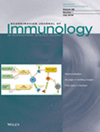
在我們進(jìn)入第三個千年之際,公共衛(wèi)生正面臨新出現(xiàn)和重新出現(xiàn)的疾病的挑戰(zhàn)。這種衛(wèi)生轉(zhuǎn)變包括人口結(jié)構(gòu)的變化和衛(wèi)生服務(wù)對不斷變化的疾病模式的反應(yīng)。然而,盡管正在進(jìn)行的過渡考慮到“福利”和老齡化的慢性病,但它肯定也是眾所周知的危險因素“輸出”的結(jié)果。預(yù)防往往取決于公共衛(wèi)生政策和基于證據(jù)的實施,而不是尋找新的危險因素。衛(wèi)生公平是當(dāng)今大多數(shù)國家和機(jī)構(gòu)的公共衛(wèi)生議程。不公平意味著不公平——但沒有什么比貧窮更不公平,也沒有任何流行病學(xué)風(fēng)險因素比貧窮更強(qiáng)烈。在將貧窮和衛(wèi)生需求的長期性和流行性引起世界良知的注意方面,一份公共衛(wèi)生雜志可能是一個杠桿。我們不會避免披露這些價值前提。它們?yōu)楣残l(wèi)生研究人員帶來了未來的挑戰(zhàn)。我們的目標(biāo)是使這本雜志成為一個地方、國家以及全球衛(wèi)生問題的論壇,我們希望認(rèn)識到在使理論和方法更接近公共衛(wèi)生努力方面所面臨的挑戰(zhàn)。我們一定會努力反映健康的多學(xué)科性,這已成為近年來全球公共衛(wèi)生的特點。因此,流行病學(xué)家、衛(wèi)生經(jīng)濟(jì)學(xué)家和社會學(xué)家可在公共衛(wèi)生的效力、成本效益以及社會和倫理影響方面,對不斷變化的公共衛(wèi)生的概念和方法發(fā)展作出貢獻(xiàn)。自2000年1月以來,SJPH處于新的編輯管理之下。我們歡迎北歐和南歐對北歐以及國際公共衛(wèi)生發(fā)展、基于課桌或?qū)嵉氐亩亢投ㄐ匝芯康呢暙I(xiàn)。我們的雄心是明確的,即培育和傳播公共衛(wèi)生努力的有效成果,并盡我們最大的能力影響當(dāng)前衛(wèi)生研究的不平衡,即對大多數(shù)衛(wèi)生問題的研究努力太少。
Public Health as we enter the third millennium, is facing challenges of new and re-emerging diseases. This health transition includes both changes in demographic patterns and the responses of health services to changing patterns of disease. However, while the ongoing transition allows for the chronic diseases of "welfare" and ageing it certainly also results from the "export" of well-known risk factors. Prevention often lies in the hands of public health policy and evidence-based implementation rather than in the search for new risk factors. Equity in health is on the public health agenda of most countries and agencies today. Inequity means unfairness - but nothing is as unfair as poverty, nor any epidemiological risk factor as strong. In bringing the chronic and pandemic nature of poverty and health needs to the attention of the world's conscience, a public health journal may be one lever. We will not avoid disclosing these value premises. They create a future challenge for public health researchers. Our ambition is to make this journal a forum for local, national as well as global health issues and we would like to recognise the challenge in bringing theory and methods nearer to public health efforts. We will certainly try to reflect the healthy multidisciplinarity that has become characteristic of public health globally in recent years. Epidemiologists, health economists and sociologists may thus contribute to conceptual and methodological development of the changing public health in terms of its efficacy, cost-effectiveness and social and ethical implications. Since January 2000 SJPH is under a new editorial management. We welcome contributions from North to South, on Nordic as well as International Public Health Developments, desk or field based studies, quantitative as well as qualitative. Our ambition is unequivocal - to foster and disseminate valid results from public health endeavours and, to the best of our ability, influence the current health research disequilibrium - that too little research effort is addressed to the bulk of health problems.
SCI熱門推薦期刊 >
SCI常見問題 >
職稱論文常見問題 >
EI常見問題 >